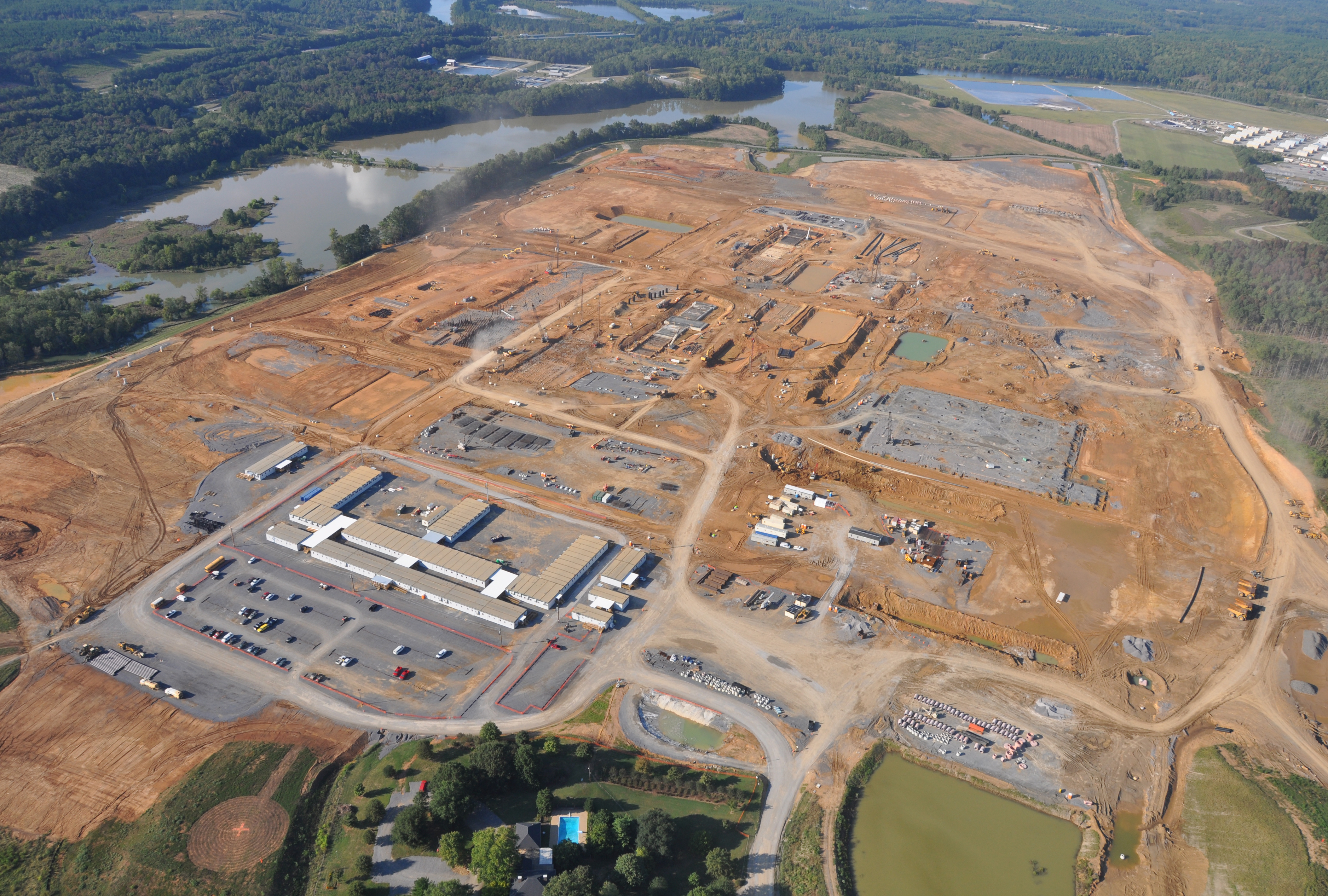Map
The Wacker site
CHARLESTON, Tenn. -- Builders of Bradley County's Wacker plant have hit a new milestone as they've started foundation work for some of the $1.5 billion factory's buildings.
One the largest plants in the Chattanooga area when it comes on line in late 2013, the polysilicon production facility will have 30 to 40 structures on its 550-acre tract.
Work is speeding ahead on them.
"We're ramping up quickly now," said Martin Richtberg, Wacker's project manager, in an interview at the site Monday about 30 minutes northeast of Chattanooga.
At its peak, the company expects to have between 2,000 and 3,000 construction workers on the site in mid-2012.
Richtberg, 42, has managed four Wacker projects in his homeland.
"We have two sites in Germany where we are manufacturing polysilicon. It was a major step for our company coming to the U.S.," he said.
Wacker is one of the world's largest producers of polysilicon, a key ingredient in the building of solar power panels for homes and businesses. The company plans to hire about 650 people for the plant.
Amanda Plecas, the facility's communications manager, said the company has hired about 120 employees to date.
That's in addition to about 80 Germans working on the project, she said.
"We're in process of hiring the next 60" employees, Plecas said. Training is in progress at Chattanooga State Community College's Wacker Institute.
Don Zierold, the Bradley project's head of construction management, said there were 550 construction workers on site Friday.
Soon, workers will be bused into the site from a parking area off Lauderdale Memorial Highway, he said.
Zierold said that despite the soft economy, it will be a challenge to find workers, especially in skilled disciplines.
Buildings will start going up late this month, he said, with major structures rising through April.
Some towers used for the production process will rise about 200 feet, Richtberg said.
"The skyline will change dramatically," he said.
Equipment and piping deliveries will start rolling in early next year, officials said.
"We could see 200 to 300 trucks a day bringing this material in," Zierold said.
future expansion possible
Richtberg said about 220 acres are being used for the Wacker project. That leaves about 230 acres for future expansion, he said.
"This property is good for another at least two expansion phases, but there's no decision on timing," Richtberg said. "That is subject to market development and supervisory board approval."
Wacker remains confident about the project though the solar market is under pressure, he said.
"But over a long-term basis, the demand for polysilicon on a global basis is significant," the project manager said. "That's why we'll stay on track and complete this project on time."
feeling at home
Richtberg said Wacker intends to use much of what the plant produces in the U.S. He said if development isn't as strong as expected, there is flexibility to supply other markets.
Zierold said there's a sequenced commissioning process for the factory.
"It's like a body," he said. "We have to start bringing the plant to life."
Also, he said a new road is under construction to the plant.
Richtberg said he and other Germans are feeling at home in the Bradley area.
"Even the adjustment for family was much easier than we expected it to be," he said. "We're feeling welcomed here."

